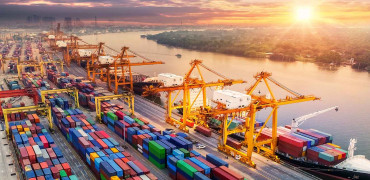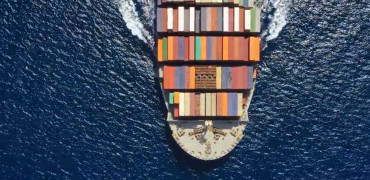With the date now set for the Autumn Budget and the Chancellor in need of a good result, Jim McClelland asks: Is this the wrong time to go on the defensive and ‘park the bus’?
The Labour Party Conference opened in Liverpool this week, with the Government trailing in the polls and rumours emerging of a leadership challenge to Prime Minister Keir Starmer.
It seems neither the conference, nor the country is convinced ‘Things can only get better’.
Under the microscope will be any new fiscal policy promises and growth forecasts for the UK, especially as the Autumn Budget now officially looms large on 26 November, 2025.
In a video message to confirm the date, Chancellor Rachel Reeves felt the need to begin her rallying cry with a note of defiance, or denial, stating: “Britain’s economy isn’t broken.”
When that is the starting point for your pitch to the public, you know you are in trouble.
What options has the Chancellor got, that make both political and economic sense?
Chancellor in need of a win
It is easy to think of the Budget as a statement made on behalf of the Government and the Cabinet, as a whole. However, in truth, its success, or failure, is always pinned squarely on the Chancellor, themself. Not without risk, it is their big moment, politically and personally.
It is only three years since Kwasi Kwarteng delivered his now-infamous ‘mini-Budget’ — a statement so ill-received it crashed the UK economy. The so-called Growth Plan 2022 not only cost Kwarteng his job as Chancellor but ultimately contributed to Liz Truss breaking the record for the shortest-ever tenure as British Prime Minister, lasting just 45 days.
For current Chancellor Rachel Reeves, it could also be make-or-break time. Much like a Premier League manager coming off the back of a string of defeats, Reeves badly needs a win. However, the range of tactical options at her disposal looks limited.
More politics than economics
Anyone making major strategic decisions affecting the wealth and prosperity of an entire nation, from corporates to consumers, inevitably finds themselves in the media spotlight.
The likes of Jerome Powell, as Chair of the US Federal Reserve, and Andrew Bailey, as Governor of the Bank of England, often talk about being led by the data, when explaining to the press how they arrived at key decisions around interest rates and monetary policy.
In other words, they prefer to point to the science that underpins the economics.
By contrast, the Chancellor is a politician, first and foremost; and, maybe, an economist second. Inevitably, they are influenced by the polls, not just the data. They are answerable to a party and an electorate; they get held to account for promises made in manifestos.
This makes their job harder — it is not just about facts and figures, but hearts and minds.
So, what options has the Chancellor got, that make both political and economic sense?
Inflation, debt and GDP
The Labour Party Manifesto 2024 on which the current Government got elected last July contains an explicit pledge not to raise rates of income tax, national insurance or VAT.
Politically, that appears to take three options off the table from the get-go. It is possible to play with thresholds, to effectively move the goalposts — so, total tax rises only in relative terms, for instance, allowing for inflation — yet these areas remain hyper-sensitive.
The alternative for a Chancellor wanting to boost the revenues coming into the public coffers is to stimulate growth — which is the perilous path taken by Kwarteng and Truss.
The good news here for Reeves is that the latest independent forecast for GDP from the Organisation for Economic Co-operation and Development (OECD) raised expectations slightly for the UK in 2025, up from 1.3% to 1.4%. However, the OECD still predicts a slump back the following year, with figures unchanged for 2026, flatlining at just 1.0%.
The not-so-good news is that the Organisation also confirmed the UK has highest rate of inflation this year of any of the advanced G7 economies. Given that the proportion of UK debt compared to GDP actually hit 100% last year, too, the fiscal challenge is plain to see.
In short, costs are going up, there is no cash in the kitty, and borrowing is a burden.
Are there any rays of sunshine, then, peeking through the storm clouds ahead?
Investment and reform
Yes. In fairness to the Chancellor, the two bright spots on the horizon are precisely the same primary tools for change that she identifies in her video: investment and reform.
Following the imposition of a relatively benign baseline tariff rate for the UK of just 10%, US President Trump has since followed up with an historic second State Visit.
His trip across The Pond also saw the announcement of a massive £150bn package of inward investment, which could create as many as 76,000 new jobs across sectors such as clean energy, life sciences and advanced manufacturing, plus artificial intelligence (AI).
In terms of reform, one of the target areas most talked about by Reeves and colleagues is the planning system, perennially blamed for being slow and obstructive to growth.
To get Britain building again, at least in residential markets, an ambitious uplift in housing targets means the Government now aims to deliver 1.5 million new homes by 2029.
The dismal recent performance in the share prices of volume housebuilders in the UK points to widespread weakness in the industry, at present. However, the broader home-improvement and DIY sector did record a rare positive note last month, with B&Q owner Kingfisher Plc reporting better-than-expected half-year results, sending the stock soaring.
Not time to ‘park the bus’
All in all, Rachel Reeves faces a pretty unenviable task when she steps up to the despatch box in the House of Commons in late November.
Any win will be hard-fought and scrappy; any defeat might signal the beginning of the end for her as Chancellor of the Exchequer.
The best she can expect is probably the equivalent of a goalless draw; frankly, the UK deserves better.
Defending when down is not enough; now is not the time to ‘park the bus'.
Jim McClelland is a sustainable futurist, editor, journalist and speaker




